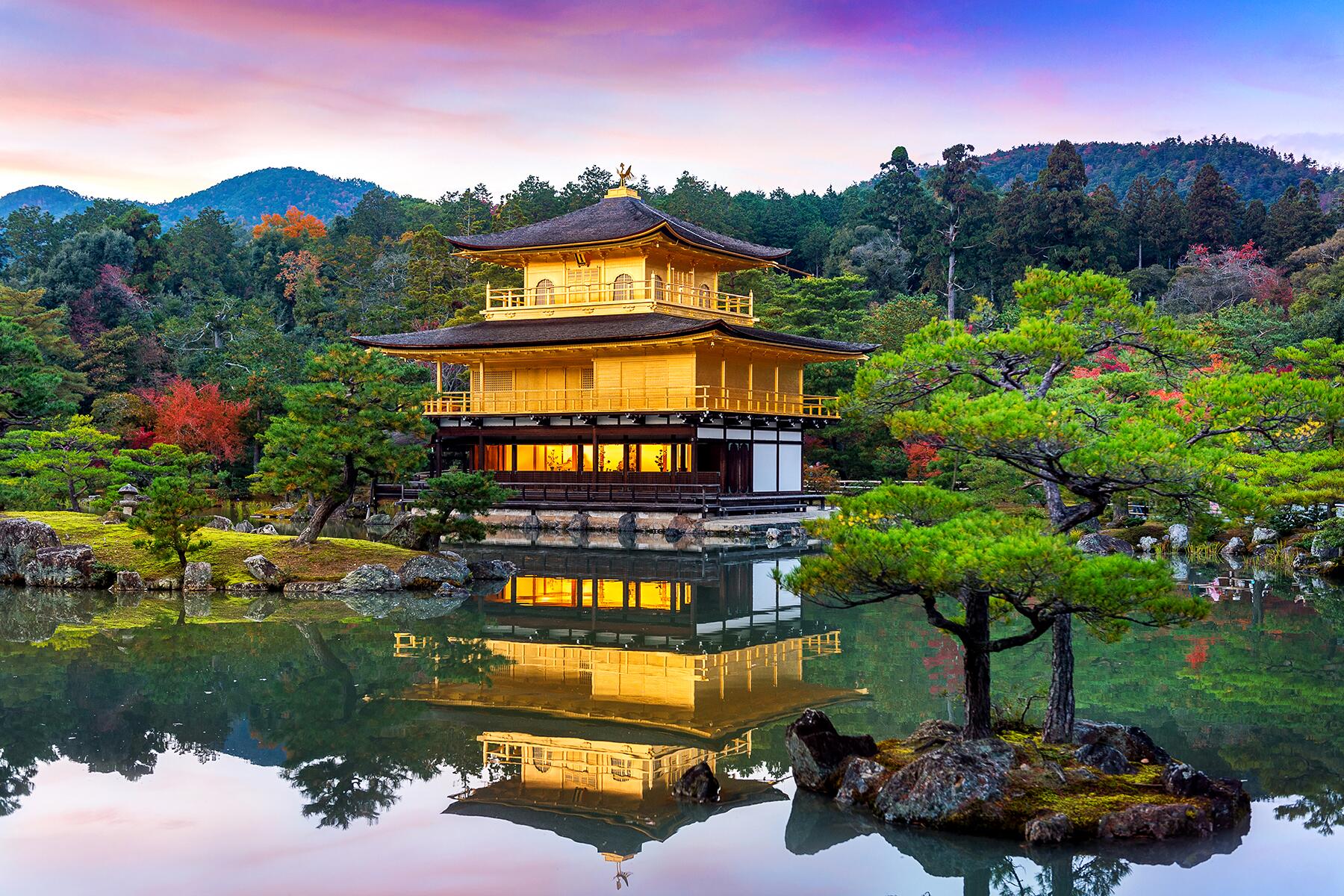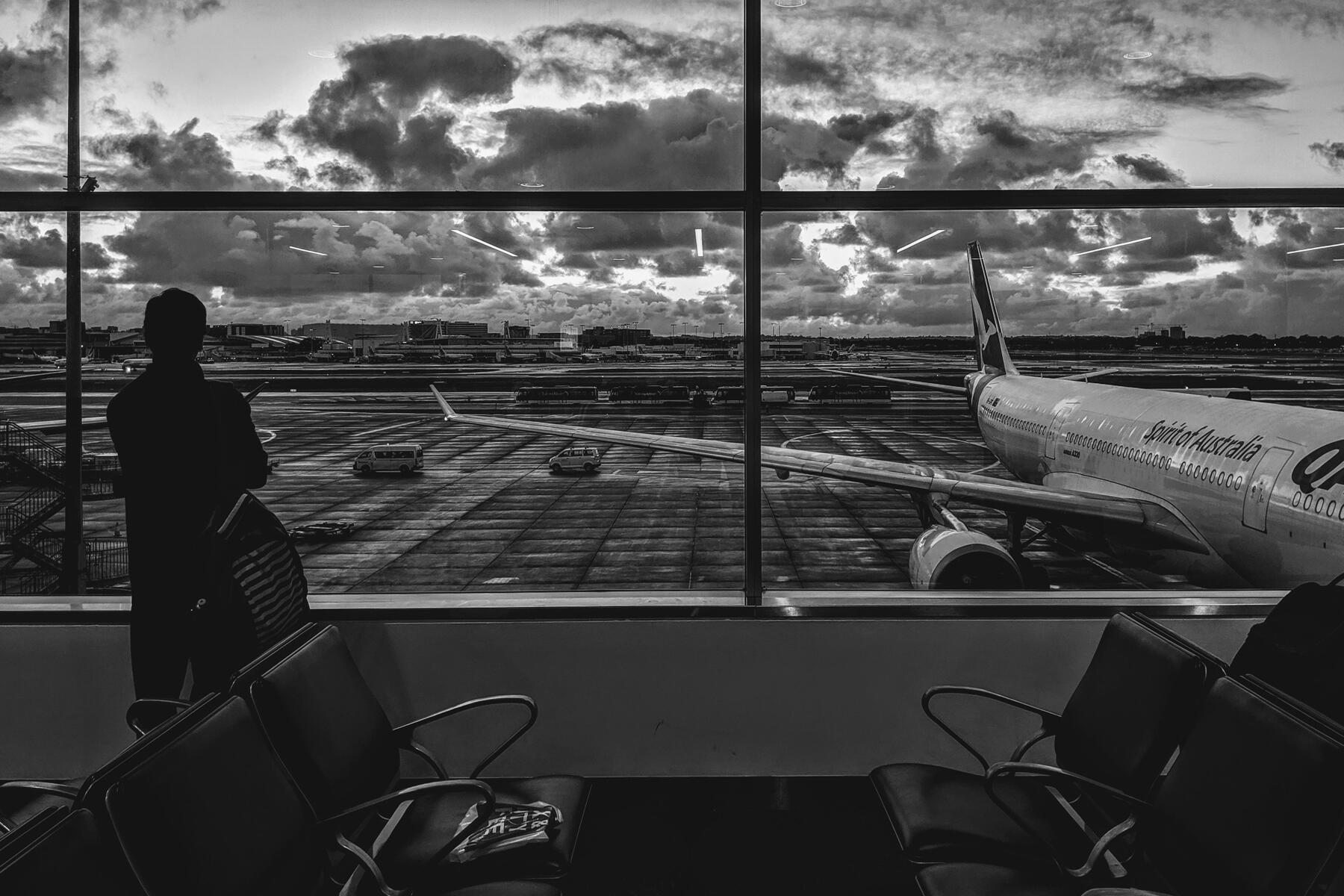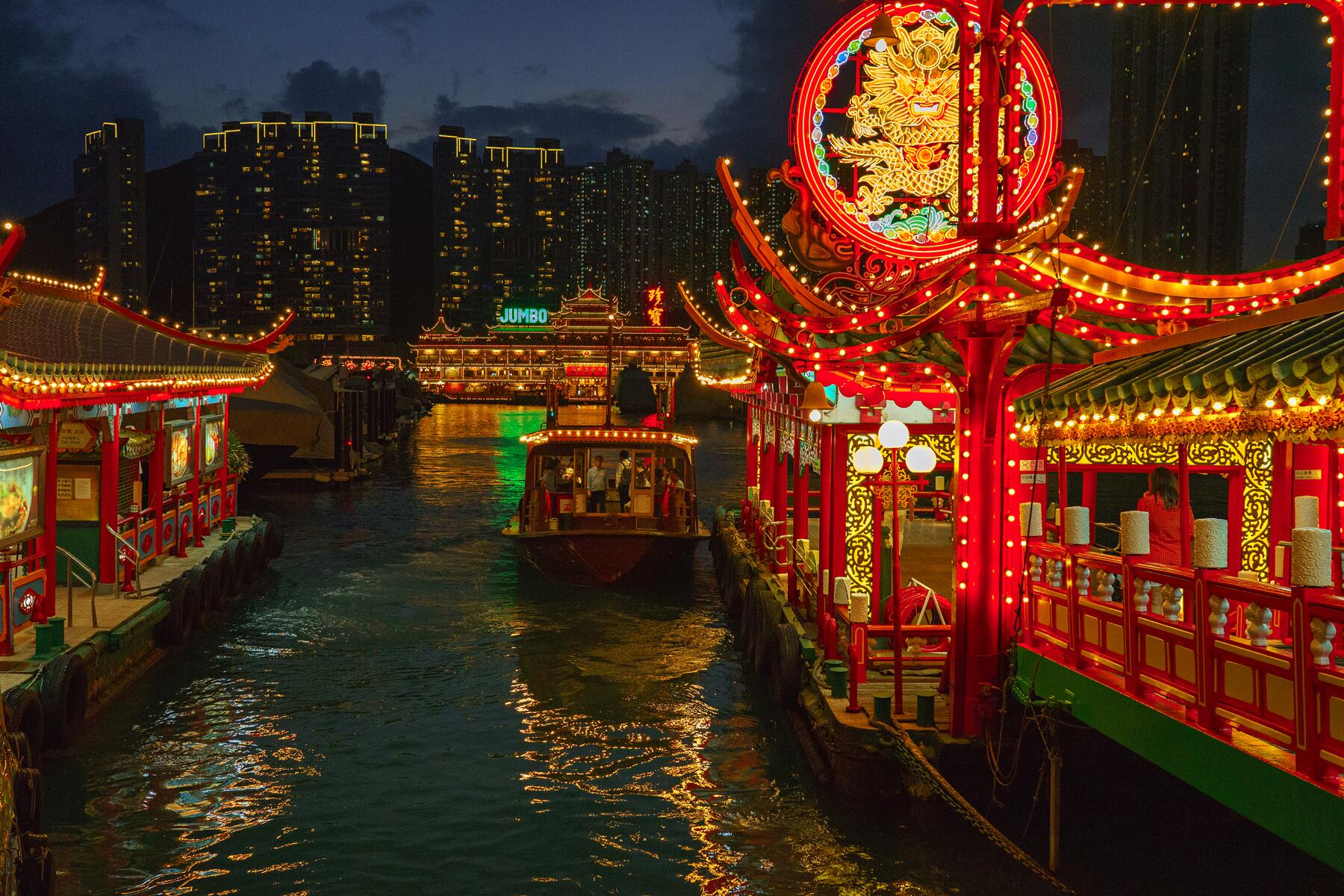Can a city based entirely on tourism survive a pandemic?
While the world is coming apart at the seams due to a global pandemic making us all collectively go crazy, there remain places that have been hit worse than others. New York, London, Wuhan, and Italy have all been decimated by COVID-19, with city resources being stretched to the limits. But one city has a different problem. Las Vegas has been left to question: What happens to a city whose entire claim to fame is tourism and crowds?
Las Vegas has some very unique challenges ahead of it. How do you social distance on a dance floor at a nightclub? How do you have a drink at a table while wearing a mask? And how do you regulate the $7.99 buffet (hopefully they’re gone forever)?
When Las Vegas mayor Carolyn Goodman told Anderson Cooper on CNN that she wanted to offer the city up as a control group to see if the virus will simply die out, the city’s residents reacted to the remarks with anger, fear, consternation, and bewilderment. But not all residents feel the same way.
Fodor’s spoke to the publisher of the Las Vegas Sun, a travel and tourism instructor at the College of Southern Nevada, a general contractor working construction, a supply chain specialist, a restaurant marketing consultant, and a cocktail waitress at one of the top casinos on The Strip to understand what’s happening on the ground, whether the city can reopen safely, and their feelings in general. What we found is there’s a lot of hope, fear, anger, and confusion, and it’s only been seven weeks.
Recommended Fodor’s Video
The Casinos
As the lifeblood of the city, the casinos are faced with unique problems. If you think about every aspect of these resorts, you’ll begin to slowly realize that reopening safely is near impossible. Think about every slot machine handle, every cocktail glass, every concert venue, every pool party, every bar and restaurant, every craps table, every smoker, every hotel room—you’ll begin to understand the daunting nature these businesses are forced to confront.
Think about every slot machine handle, every cocktail glass, every concert venue, every pool party, every bar and restaurant, every craps table—you’ll begin to understand the daunting nature these businesses are forced to confront.
Some of the casinos have started to offer up guidelines for their reopening plans. The Venetian launched an initiative dubbed “Venetian Clean”, which outlines the more than 800 separate initiatives they’re putting into place to protect employees and guests. This includes thermal scanners to check temperatures at entry points, hand sanitizer stations everywhere, physical distancing in all areas, and consistent cleaning of all surfaces throughout the day.
The Wynn is implementing similar measures with a health and sanitation program that includes many of the same protocols as The Venetian. They’ve also included, however, touchless check-in, amenity bags with sanitation supplies, and cleaning protocols for every single area including slot machines, table games, and poker chips.
Most of the casino operations are guided by the Nevada Gaming Commission which has set guidelines for all operations to adhere to. This includes limiting numbers of players at tables to three for blackjack, six for craps, and four for poker.
Even with all these measurements in place, we still have to ask: Does any of this matter if people are still too afraid to fly, can’t see a Vegas show, and can’t grind at a nightclub? Does separating people by a few feet while they gamble simply create an illusion of safety?
Here are the people on the ground and what they have to say about all of it.
The Publisher
Brian Greenspun is the publisher of the vaunted Las Vegas Sun, which has been publishing a daily newspaper in the city since 1950 and looks at the situation through optimistic, yet realistic glasses.
“I’m the biggest cheerleader for Las Vegas that I’ve ever met, and I think it’ll be different for a long time,” Greenspun said. “I do think when people think it’s safe to come here, they will come here. People love Las Vegas. But we rely on people from other places to make our economic engine work. While 100% of the town is not attached to that tourist engine, most of it is. In other words, when the hotels are closed, no one is really working. Nothing is happening.”
Regarding the mayor, Greenspun had some pointed comments, but also made it clear that she doesn’t actually have the ability to make Las Vegas do anything.
“I’m the biggest cheerleader for Las Vegas that I’ve ever met, and I think it’ll be different for a long time.”
“I understand, I think, that the mayor is expressing frustration for a lot of people who just can’t afford to be locked up in their houses. The easy decision is to say, ‘open up.’ It’s a stupid decision, but it’s an easy decision. The hard decision is to make this entire engine of the state of Nevada shut down. But here’s the great secret that’s now been revealed, 99% of people who come to Vegas think that when they’re in the Bellagio hotel or the Wynn hotel, they think they’re in Vegas. But from a political boundary standpoint, they’re actually in the unincorporated part of Clark County. The mayor is the voice and the face of greater Las Vegas. The ribbon-cutting, the speeches. But from a broad political power standpoint, that belongs to Clark County. If she ordered people to stay home, it’s meaningless.”
Though it’s nearly impossible, I asked Greenspun to prognosticate on what will happen in the coming months in the city.
“If you were to talk to most of the hotels, they’re not looking to flip the switch and reopen on May 16. My guess is that you’re gonna see casinos hold a fraction of what they used to hold. I’m sure the hotels will be as careful as they possibly can, to not only take care of their employees, but their guests. And then we’ll have to figure out if it’s working. And that won’t happen on May 15. I don’t think you’re going to see the Electric Daisy Festival. You’re not going to see Jennifer Lopez in concert. You’re not going to see the day clubs and nightclubs. You’re not going to see the crowded restaurants. You’re not going to see any of that for a good while.”
The University Instructor
Michael Schoenberger is an instructor who teaches travel and tourism at the College of Southern Nevada. He teaches courses on special events, putting on concerts, and organizing conventions that can deal with upwards of 150,000 people. From Schoenberger’s perspective, the city might be irrevocably changed.
“How do you maintain the Vegas experience with the idea of social distancing?” asked Schoenberger. “If you take away the clubs and bars, would you even want to go? And if you think about gambling, in the 1960s, Nevada was your only option. But that’s not the case anymore. Why would you go to Vegas with hundreds of thousands of people when you can go to your local casino?”
Schoenberger is an expert on the business models that make Vegas run, and his predictions are a bit on the dire side.
“You’re not going to see Jennifer Lopez in concert. You’re not going to see the day clubs and nightclubs. You’re not going to see the crowded restaurants. You’re not going to see any of that for a good while.”
“The convention and concert business are just gone through 2020. And probably halfway through 2021. Vegas has a lot of the same issues that Orlando has. They’re very different places but are both one-industry towns with the same amount of hotel rooms and tourists to keep the models working. They’re both reliant on air-traffic–roughly 50% of the business is from that and no one can predict what that will look like in two months. And the economics of cheap travel doesn’t work.”
According to the Las Vegas Convention & Visitors Authority (LVCVA), only 21% of people surveyed said they were planning on coming to Vegas in the next 3-4 months. And looking at the casino business specifically, Schoenberger goes into detail on why they’re in big trouble.
“If you’re a casino in Vegas, you now need to have 20 guys on the floor just disinfecting everything. So, their costs are going way up but revenue is way down. Now maids can do fewer rooms on shifts because they have to do deep cleaning. Can you charge enough money to offset these costs? In two years, things may be back to normal, but only if there’s a vaccine. Vegas is still going to be a sad place a year from now. Six months from now, big companies will be filing for bankruptcy unless there’s a miracle.”
The General Contractor
While most people I spoke to seem to think closing Vegas down makes sense for the long run, Sean Baker, a general contractor who works in construction on casinos and other restaurants and entertainment venues, feels much differently.
“Our freedoms are being challenged,” said Baker. “We’re Americans and we live here with the privilege of freedom and our freedom has been taken away from us. We’re the essential workers keeping the country limping along and then we have the House of Representatives refusing to come to work. And that’s tough for me. We should be able, as Americans, to make our own decisions.”
Baker is currently working on a project called Area 15, an experiential retail and entertainment complex that practically relies on a lack of social distancing. The complex consists of bars, restaurants, retail, live event space, and more. And when they’re done, Baker hopes people will come flocking.
“I think there’s a huge overreaction. I think people are aching to come and so excited to get back here because of what Vegas is. It’s a release from the normal lives people have. But if they stay closed, I think there will be protests everywhere. The whole idea of the quarantine and social distancing is completely contradicted by allowing you to go to the grocery store. On one side you’re being told to social distance and then the next breath you can go out to a grocery store. It’s all starting to piss people off because we can’t make sense of this.”
The Supply Chain Specialist
Kevin Ball is the Chairman of the Board of the Epicurean Foundation that provides scholarships to students who want to work in the hospitality and culinary worlds. But he’s also a consultant who helps businesses streamline their supply chains. This crisis has kept him very busy, and Ball has a unique, front-row seat to the changes in store for the city.
“Basically, we’re trying to figure out what occupancy will look like from a liquor perspective and food perspective,” said Ball. “And you’re going to see casinos half full. In 2019 the strip brought in $18.9 billion. That will be cut in half, and that’s if they all open at once. But MGM is only opening a few hotels. And I have heard that nightclubs probably won’t open for the rest of the year. How do you social distance a nightclub on the dancefloor? As for shows like Cirque, all shows are shut down for June. So, maybe they reopen in July at 50% capacity? I see them producing only half the shows.”
The supply chain has been disrupted all over the country, but it is acutely felt in a place like Vegas, where the reliance on tourism fuels the entire economy. When you can’t predict when people will come, how can you predict what to order?
“I help companies streamline their supply chain. But what do we bring in on day one of a reopening or week two? How do we forecast to our vendors? Meat, proteins–you read about all these packing houses shutting down. So now we’re being forced to modify menus. What we’ve all talked about is trying to forecast what you think your demand is going to be. But we have to be more flexible for the next six months. Las Vegas is one dimensional. It’s gaming tourism. And you live and die by the gaming industry.”
The Restaurant Marketing Consultant
Eric Gladstone is the owner of The Feast of Friends and is a marketing consultant to mostly independent restaurants off The Strip. He also runs an event called Un-Stripped, which is a celebration of independent chefs in Vegas, that had to be rescheduled. Gladstone’s perspective is from the non-casino restaurant world, but he still understands that if the casinos are empty, his restaurants will be as well.
“The difference [of Las Vegas]–if you open it up, will anyone show up?”
“From my perspective, the trend has been shifting away a bit from the strip to the city as a whole,” Gladstone revealed. “That said, it’s still predominantly a tourist destination and everything is still influenced by what happens at the resorts because of people’s incomes. That’s why it’s more complex here than other cities when you reopen. The difference here–if you open it up, will anyone show up? It doesn’t serve any of these casinos to staff up and go to all the expense and effort to operate if they don’t get people coming under any conditions. And then how do you create a sense of safety?”
Gladstone’s restaurants are in the challenging position of figuring out new business models, new dynamics, and just new ways to serve customers. But he’s more optimistic than most.
“It’s very challenging to come up with a game plan when you don’t know what the game is or where the goalposts are. I want to say in general, there have been all these statements like the world is ending. But I don’t think the things we’ll see in the next six weeks or six months will be permanent. We’re gonna figure this out. Does that mean restaurants will be the same? No. But maybe this gives us opportunities to get better at hospitality and get better at what we do. The one thing the hospitality industry has been good at is pivoting. You meet your customer’s needs. As long as we make people comfortable here, people will come back.”
The Cocktail Waitress
Because she works at one of the top casino resorts in Vegas, this cocktail waitress has asked to remain anonymous. For the sake of the piece, we’ll refer to her as Jen.
As a cocktail waitress, Jen’s biggest concerns are about worker safety and how to do her job if social distancing measures are implemented.
“Is it cost-efficient to even come to work?”
“Vegas is a place with no restrictions and people let their hair down. But from the worker perspective, even though the money is great, it’s also a little scary,” said Jen. “As a cocktail waitress, we’re charged a tip allocation and we pay taxes on the tips we make. A lot of these venues that are opening are only able to allow people to come in at 50% capacity. Is it cost-efficient to even come to work? Vegas is about energy, and the restrictions kill the energy which kills the enjoyment. People come to Vegas for fun and to pretend and live out their alter-egos but COVID-19 takes that away because you can’t escape what you left.”
On the positive side, Jen’s employer seems to be doing the right thing by her and her colleagues. “I think the casinos have done a decent job of protecting the customers and employees, but I think there needs to be a vaccine. If we don’t feel comfortable, there’s no penalty for us to not come back. Some just want to go back to work and don’t see the dangers and some people feel like it’s too soon. The good thing is that we’re under culinary insurance and have good healthcare where we’d be able to get treatment and are offered free testing if we need it.”
Mostly though, Jen is worried. Worried about people coming back from all over the world. Worried about the saliva on a cocktail glass. Worried about people taking off masks to smoke. And worried that everything might open too quickly.
“I think overall, opening sounds great. I miss work and want to go back to work, but it’s really one of those things where we might be opening too soon when we interact with hundreds of people a day from different cultures and places. We can be an incubation of disaster.”



